The 10 Biggest Dell Technologies News Stories Of 2019 (So Far)
CRN breaks down the ten biggest stories from Dell Technologies in 2019 so far.
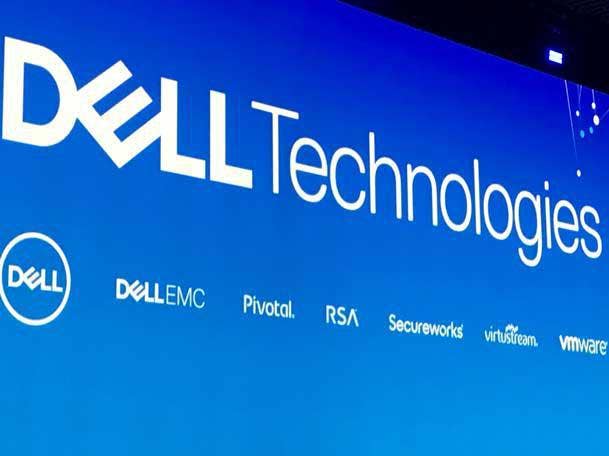
Welcome To The New Dell Technologies
It’s been quite a year already for Dell Technologies as the $91-billion company leaves its server, storage and hyper-converged infrastructure competitors in the dust.
Not only did the Round Rock, Texas-based company report growth for its first full quarter as a publicly traded company, but its innovation engine around artificial intelligence, storage and client solutions have been roaring. Most of the biggest news this year came during Dell Technologies World 2019 as the global infrastructure leader unveiled its bullish Dell Technologies Cloud, which it dubbed as the “best hybrid cloud platform on Earth,” as well as launching a revamped partner program.
CRN breaks down the top 10 biggest Dell Technologies news stories so far this year.

10. Dell’s Stock Market Splash
On Dec. 28, 2018, Dell Technologies entered the public market after a historic $24 billion cash and equity deal though a VMware stock swap, marking the first time since 2013 that Dell is a public company. With its former DCMT tracking stock now terminated, investors are now betting on Dell Technologies as a whole for the first time.
The company debuted on the New York Stock exchange at $46 per share under the ticker symbol ‘DELL’. The stock rocketed to near $70 per share in May that gave investors a 52 percent profit in around five months. However, the DELL stock has been slowly declining over the past few months, trading around $51 per share as of July 10. Investment and financial firms like Deutsche Bank and Evercore ISI are still giving Dell a “buy” rating.
The improved capital structure Dell Technologies gained by returning to the public stock market will “catapult” it ahead of its competition by accelerating VMware integrations, enabling financial flexibility for future acquisitions and providing sales “velocity” for channel partners, said Executive Vice President and CFO Tom Sweet in an interview with CRN this year. “The whole goal here is to align economics and equity and trust,” he said.

9. S erver Dominance Continues; Small Hiccup In China
Dell Technologies once again asserted its dominance in global server market share in the first quarter of 2019 by capturing more than 20 percent share, according to IT research firm IDC. The company generated nearly $4 billion in server revenue in the quarter, up 9 percent year over year, as Dell’s market share rose from 19.3 percent in first-quarter 2018 to 20.2 percent year over year. Dell’s main competitor, Hewlett Packard Enterprise, lost worldwide market share due to flat server revenue, dropping from 18.5 percent in first-quarter 2018 to 17.8 percent year over year.
Dell continued to enhance its server product capabilities in 2019. In April, the company made several advancements to Dell EMC PowerEdge servers and OpenManage management system by delivering greater control, automation, security, performance and scalability.
However, there was a sales hiccup in China during the company’s first fiscal quarter. “We have a good relationship and a good business there, but clearly the U.S.-China trade tensions are a bit of an overhang on the business,” said Dell’s CFO Sweet, during the company’s first quarter earnings conference call in May. “We were soft in servers in China. Some of that was by design as we stepped away from these large deals that didn’t make sense to us from a profitability perspective.”
8. Dell Doubles Down On AI
Dell is betting big on AI innovation as the emerging 5G market gets underway which will drive demand for more edge computing power, data services and 5G infrastructure. The company has invested heavily in its Dell EMC Ready Solutions for AI strategy this year aimed at accelerating customers’ artificial intelligent initiatives. Ready Solutions provide a slew of pre-designed and pre-validated solutions and platforms that include Dell products integrated with technologies from the likes of Intel, Hadoop and NVIDIA. These platforms are powered by Dell’s AI-focused PowerEdge servers, PowerSwitch network switches and Isilon scale-out NAS storage.
To help businesses keep pace with the unstructured data growth in AI use cases, Dell recently boosted capabilities for its Isilon scale-out NAS family by releasing new features to improve scalability, enhance cloud integration and security to support the most demanding workloads. Dell Technologies CEO Michael Dell told CRN recently that AI is a “big area of focus” with “hundreds of projects” across the company focused on driving AI and machine learnings innovation.
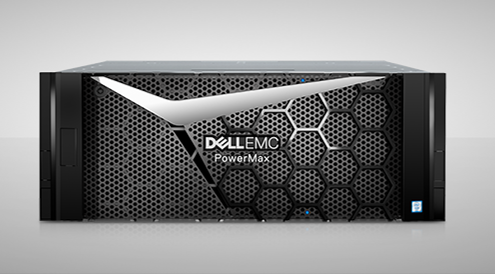
7. Storage Assault Continues With New Unity XT Series
Dell unveiled its new midrange Dell EMC Unity XT Series this year that delivers up to 2X performance, 5:1 data reduction and purpose-built for a multi-cloud world. The NVMe-ready Unity XT features a combination of software enhancements and the latest generation of Intel processors. Overall, Dell expanded on much of its storage portfolio in the first half of 2019 including a new range of cloud storage services, enhancements to PowerMax, unstructured data solutions and a new line of data protection software and appliances.
Dell Technologies won gold in worldwide storage market share for first quarter 2019, according to IDC, capturing 22.2 percent share with revenue reaching nearly $3 billion. What’s more eye popping, was Dell captured a whopping 34.4 percent market share for external storage systems, with its closest competitor, NetApp, at 13 percent share.
The company’s storage surge over the past year was led by Jeff Clarke, Vice Chairman, Products and Operations at Dell, who revamped and restructured Dell’s storage business. “Our storage organization was siloed and compartmentalized [before the restructuring],” said Clarke in an interview with CRN this yaer. “My view 15 months ago, I had XtremIO, ScaleIO, VMAX, Unity, VNX, SC [Series]—all competing almost internally with one another and dividing up engineers and not sharing IP across the boundaries. It was highly fragmented and we weren’t all rowing in the same direction. Some weren’t even in the same boat.”
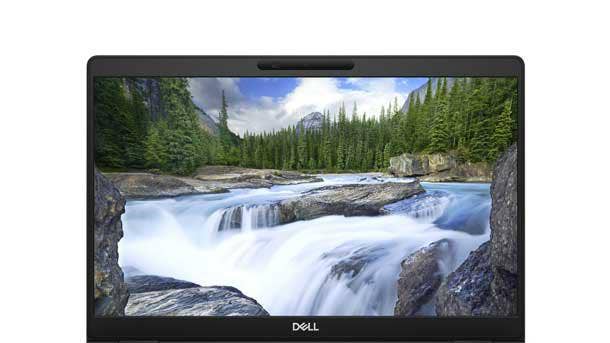
6. Workspace And PC Innovation
What can sometimes be lost in Dell Technologies’ massive enterprise portfolio is its Client Solutions Group which includes PCs, notebooks and tablets. The company’s innovation engine has been roaring this year as Dell launch of its 10th-generation Latitude notebook portfolio, new Latitude 7400 2-in-1 and its blockbuster Unified Workspace end-user platform. Unified Workspace integrates VMware Workspace ONE device management with solutions and services from Dell and SecureWorks aimed to radically change end-user computing. The 10th generation Latitude portfolio is optimized for Unified Workspace.
In Dell Technologies first fiscal quarter 2019, revenue from Client Solutions Group hit $10.9 billion, up 6 percent year over year. The company’s commercial revenue in the market segment grew 13 percent to $8.3 billion. Dell expects its commercial client business to continue to drive strong results for the rest of 2019, in part, thanks to the Windows 10 refresh cycle.
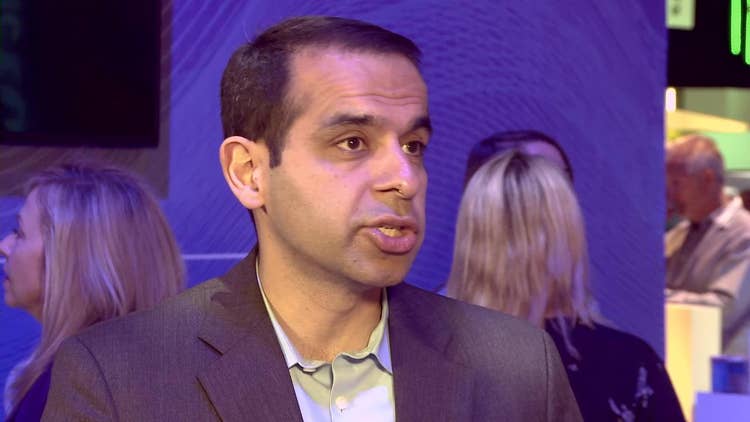
5. Dell Pivots To Consumption-Based Pricing
Michael Dell told CRN that his company is “increasingly embracing consumption” pricing models as more businesses seek pay per usage or consume as-a-service options compared to the traditional Capex approach. The company made a slash this year by announcing the new Dell Technologies Cloud Platforms can be sold in a variety of consumption-based ways through its Dell Financial Services arm. Customers can buy the cloud platform in one of three flexible consumption solutions: Pay as You Grow, Flex On Demand and Data Center Utility. Flex on Demand allows customers to acquire elastic capacity and only pay for what they use, while Data Center Utility establishes a pay per use environment across the entire IT infrastructure. Pay as You Grow includes customized payment solutions to support forecasted growth, flexible deployment schedules, deferrals and pre-provisioned upgrades.
The company’s DFS business is growing rapidly, up 11 percent year over year in Dell’s first fiscal quarter. DFS is now providing financing for around 2,000 partners globally. “Those partners grow twice as fast with Dell versus those who don’t participate with DFS,” said Dell’s global channel chief Joyce Mullen in an interview with CRN.
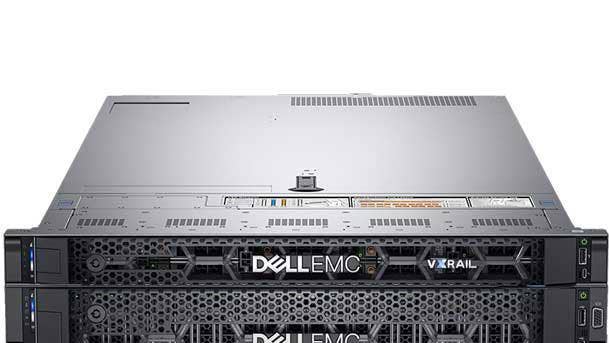
4. Hyper-Converged Market Takeover
Dell Technologies now stands alone as the dominant leader in the red hot hyper-converged infrastructure (HCI) space, a market which is on track to surpass $7 billion in global sales this year. Dell -- who jointly engineers HCI solutions alongside VMware -- generated $587 million in hyper-converged revenue in the first quarter of 2019, up 64 percent year over year, according to IDC. The company captured a whopping 32.2 percent HCI global market share, up from 28.8 percent in first-quarter 2018. Nutanix placed second in HCI market share with 14 percent share in first quarter 2019, down from 20.2 percent share year over year.
Innovation for VxRail, the company’s flagship HCI product, is at an all-time high with the solution at the heart of Dell’s new hybrid cloud strategy. The only fully integrated, pre-configured and pre-tested VMware hyperconverged system in the market, VxRail meets nearly every HCI use case and simplifies VMware cloud adoption.
Dell EMC’s hyper-converged infrastructure leader, Ashley Gorakhpurwalla, told CRN that the company has an “incredible road map” in store for 2019 that “no other company” will be able to compete with. “There’s one company that’s automating the entire stack. There’s one company that’s building a scalable control plane for the entire stack,” said Gorakhpurwalla. “You really could start small with VxRail, scale up very quickly and what you have is essentially a scalable, flexible managed service capability internally at your company. You can start to integrate into multiple clouds. This is very, very powerful.”
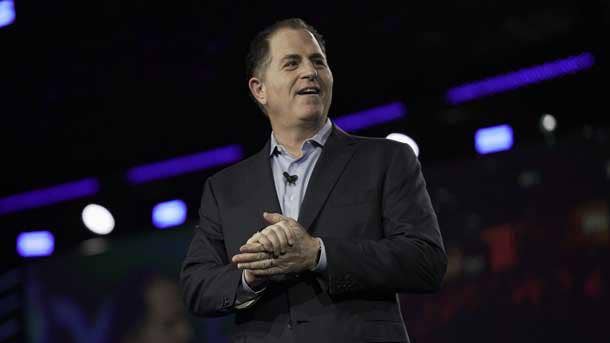
3. Dell Technologies Hits Its $91 Billion Stride
When Dell pulled the trigger on its market shaking $67 billion acquisition of EMC in 2016, critics were quick to question the operational and integration ability to successfully pull of such a massive merger. In February, Dell reported full fiscal year 2019 revenue of $90.6 billion, up an astounding 15 percent year over year. Then in May, the company reported first fiscal quarter sales of $21.9 billion, up 3 percent year over year, with expectations to surpass $100 billion in a mere few years.
“I knew if we could combine the No. 1 player in servers, the No. 1 player in storage, the No. 1 player in all things software-defined infrastructure – VMware – that you’d have the essential infrastructure company and an incredibly powerful juggernaut,” said Michael Dell (pictured) in an interview with CRN.
As now the worldwide leader in storage, servers, HCI, with its eyes set on becoming a hybrid cloud and 5G market leader, Dell Technologies’ broad portfolio is well-positioned to lead the digital transformation charge.

2. Dell EMC Partner Program Reborn As Dell Technologies
It was a new day for Dell EMC channel partners on April 29 as the Dell EMC Partner Program officially ended to make way for the game-changing Dell Technologies Partner Program. The new program aims to drive channel sales to the next level by making it easier and more profitable for partners to sell across the entire Dell Technologies portfolio – which includes Boomi, Dell EMC, Pivotal, RSA, SecureWorks, Virtustream and VMware.
Although still in its infancy, the program’s goal is to allow partners to seamlessly buy, procure and sell solutions across the Dell Technologies family of businesses. All products purchased through the program, regardless of the family of business, will count toward the tier status and tier revenue requirements in the new program. A major benefit of the program will be around certification simplification to cut out unnecessary repetitiveness and allow partners more time in the sales field rather than the training room.
“It brings a simplified access to the breadth of technology and portfolio on how they can uniquely help customers through their transformational journeys,” said Cheryl Cook (pictured), senior vice president of Global Partner Marketing for Dell EMC, in an interview with CRN. “They can now team and align with our sales force through teaming agreements and joint account planning on really realizing the maximum opportunity.”
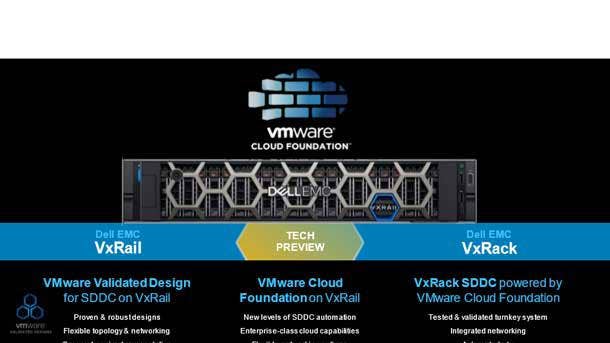
1. ‘The Best Hybrid Cloud Platform On Earth’
In possibly its biggest cloud launch in years, Dell Technologies this year took the wraps off its new hybrid cloud platform: the Dell Technologies Cloud. The cloud platform, which is still in its infancy, includes two similar offerings with the technology foundation being VMware Cloud Foundation (VCF) and the market leading HCI solution VxRail.
One offering, Dell Technologies Cloud Platforms, includes VxRail, VCF with additional product options including Dell EMC servers, storage and networking products that can be sold and managed by channel partners. The other offering is Cloud Data Center-as-a-Service which includes VxRail, VCF and VMware management that is fully managed by Dell Technologies that can be sold by partners.
“This is our opportunity to say, ‘Look, this is the best hybrid cloud platform on Earth,” said Matt Baker, senior vice president, Dell EMC Strategy and Planning in an interview with CRN. “We need to tell the world, ‘Look, this is the best way to build your hybrid cloud.’ Customers want a consistent operating environment. … Dell and our channel partners now have a well-oiled hybrid cloud platform that can be used to help our customers achieve their cloud ambitions.”